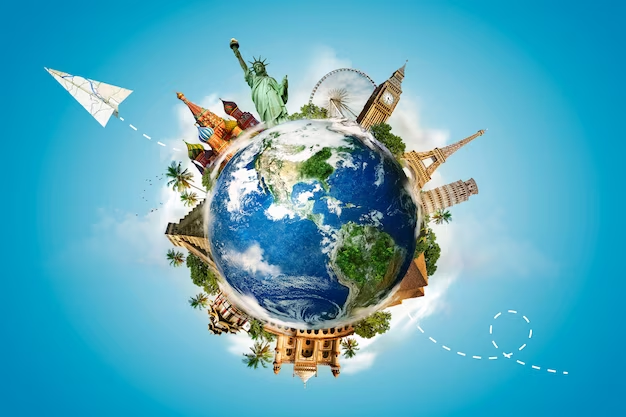
India’s corporate travel sector is worth over $10.6 billion and is going through a major transformation. In recent months, the global travel and hospitality industry has faced significant challenges but has also discovered new opportunities. This change has led to innovations and a stronger ability to adapt to a new era. As businesses adjust to these changes, understanding the needs and preferences of corporate travellers in India is more important than ever. These insights have been provided by Mr. Trishal Rao, Chief Sales Officer, SKIL, reflecting his expertise in understanding the evolving preferences of corporate travellers in India.
- Increased focus on sustainability:
Corporate travellers in India are increasingly prioritising sustainability. They are looking for ways to reduce their carbon footprint, with many companies encouraging eco-friendly accommodations, transport services and avoiding single-use plastics. Nowadays, carbon offset programs are gaining popularity. This allows businesses to offset emissions generated by corporate travel. - Wellness:
As more professionals travel for work, they are looking for ways to maintain their health and well-being while on the road. This includes staying active, eating healthy meals, and finding time to relax. Hotels and airlines are responding by offering wellness programs, such as yoga classes, healthy food options, and relaxation spaces. - Bleisure travel:
In India, corporate travellers are now embracing bleisure, which is a blend of business and leisure. Digital tools like Google Meet and Zoom make it easier for professionals to extend trips and balance work during trips and vacations. This flexibility, coupled with remote work, allows them to explore local culture and attractions without compromising professional commitments. - Experiential F&B:
Corporate travellers are looking for unique culinary experiences that go beyond regular dining and give them a taste of the region. They now seek dining at Michelin-star restaurants, castles or by lakes, as they showcase the local culture. Companies are increasingly focused on providing these memorable dining experiences, including local ingredients, cooking classes and food tours. - Highly flexible MICE options:
Corporate travellers are looking for highly flexible MICE (Meetings, Incentives, Conferences, and Exhibitions) options that can adapt to their changing needs. This flexibility is important because business schedules can change at any moment. Companies want venues that can accommodate different group sizes, locations that offer a variety of services, and options for customising their events. - Digitisation of customer touch point:
Digitization of customer touchpoints in the hospitality industry is changing how corporate travellers experience their journeys. From check-in to checkout and room service, technology is making everything easier and faster. For example, many hotels now offer mobile check-in options, allowing guests to skip long lines and head straight to their rooms. Room service can be ordered through apps, letting travellers browse menus and place orders from their smartphones. - Consolidated loyalty programmes:
Decoding corporate travellers in India reveals a growing trend towards consolidated loyalty programs that link airlines, hotels, retail outlets, and lounges. These programs make it easier for business travellers to earn and use points across different services. By understanding corporate travellers’ preferences, companies can enhance services and boost satisfaction. As the travel landscape evolves, staying aware of the changing needs of Indian corporate travellers is crucial for success.

